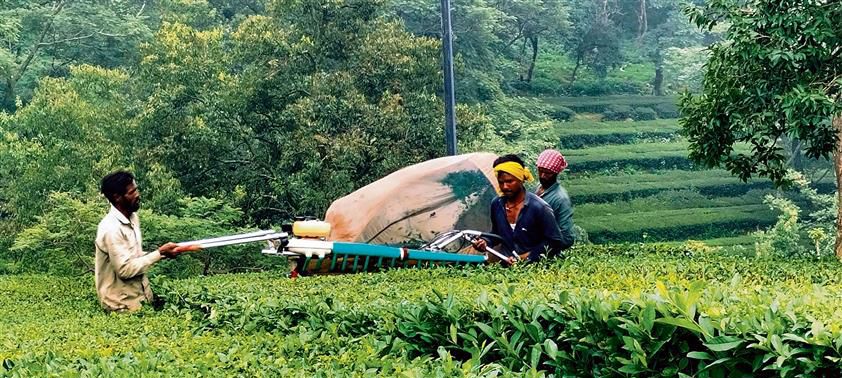Kangra tea farmers allege losses, say forced to resort to distress sale
Lalit Mohan
Dharamsala, July 28
Tea farmers of Kangra are suffering losses as they say there is lack of demand for their produce from exporters in Kolkata market. Sources here said Kangra tea, which fetched an average price of Rs 400 per kg last year, was getting price from Rs 150-200 per kg now. The farmers are alleging that they were forced to resort to distress sale as the exporters, who used to be the primary buyers of Kangra tea, are not willing to buy it due to reduced demand in international market.
Rue lack of govt support
- Farmers say that tea, which fetched Rs 400 per kg last year, was getting price from Rs 150-200 per kg this year.
- Exporters are not willing to buy due to reduced demand in international market.
- Farmers rue of lack of support from the state govt
- Tea board has suggested state government to help farmers sell their produce
Amanpal Singh, manager of a tea estate, the biggest tea garden of Dharamsala, said that this year exporters were not buying Kangra tea. Many lots of tea were lying unsold in warehouses of Kolkata. Tea farmers are being forced to sell their produce in distress at prices ranging from Rs 150 to Rs 200 per kg. Crash in prices had doubled the losses this year. Initially, the farmers suffered due to loss of production bacause of lack of rain and high temperatures in the months of May of June and now due to crash in prices.
Production hit by lack of rains
Prices of Kangra tea have crashed due to changed international scenario and poor demand in international market. The farmers suffered double loss as tea production was reduced by about 20 per cent due to high temperature and lack of rains in May and June. The state government has been urged to support the tea farmers for selling their produce locally. —Tea Board of India official
KG Butail, another leading tea farmer from Palampur region of Kangra, said that the Kangra tea cannot sustain without government support. The state government does not allow any other activity on land of tea gardens in Kangra but also does not support the tea farmers of the state. “We had given suggestions to the government that they should be provided warehouse facility in Kangra for keeping their produce. Presently, since no warehouse facility is available for tea in the state, the farmers are forced to sell their produce to warehouses in Kolkata. The farmers had also demanded that the state government should help them sell their produce locally to the tourism department and at other government outlets. However, till date no support has come from the state government,” he said.
Abhimanyu Sharma from the Tea Board of India office in Palampur said that prices of Kangra tea had crashed due to changed international scenario and poor demand in international markets. He said this year the farmers suffered double loss as tea production was reduced by about 20 per cent due to high temperature and lack of rains in the months of May and June.
Abhimanyu said the state government had been urged that it should support the tea farmers for selling their produce locally. A suggestion has been made that the state government should have an outlet in Golden Temple complex in Amritsar for helping farmers sell their tea to devotees coming there. Besides, it can also be sold in temples of Himachal, he said.
According to experts, the production of Kangra tea has fallen to just 8 lakh kg per annum against 17 lakh kg per annum recorded in 1998. The said production is just .01 per cent of the total 90 million kg production tea in the country. Though the tea has its own Geographical Indicator (GI) that is also recognized by the European Union the farmers growing it are suffering losses.










